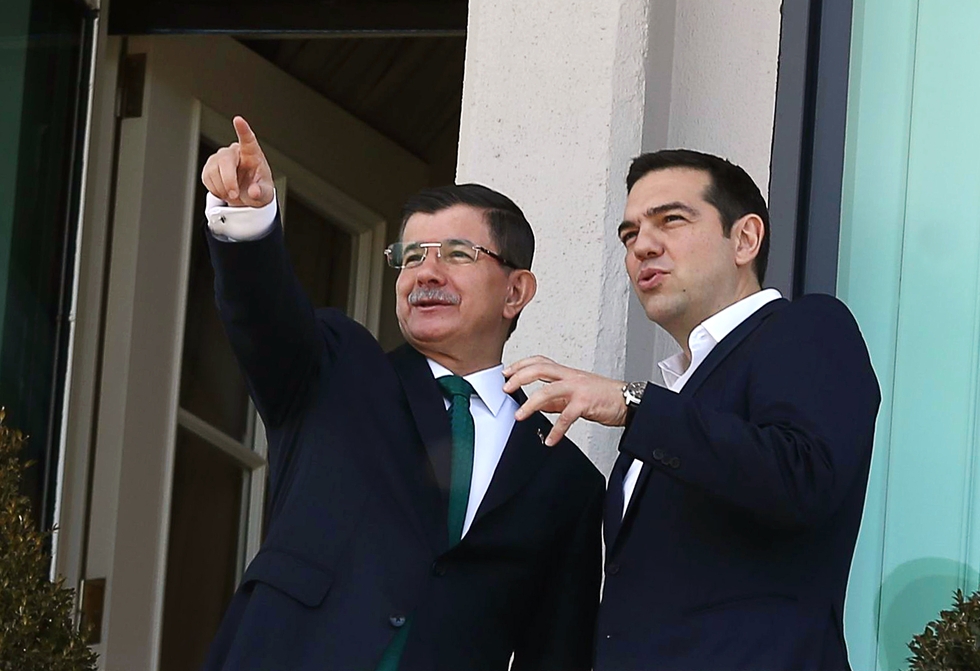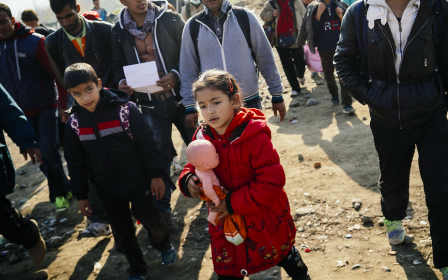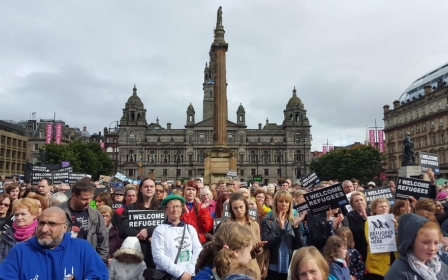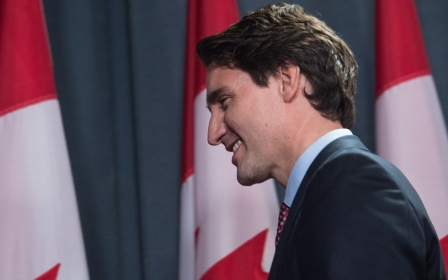Turkey, Greece boost cooperation to tackle refugee crisis

Greece and its neighbour Turkey on Wednesday agreed to "urgently" unite efforts to tackle the flow of refugees entering the European Union member state from Turkish territory.
Visiting Greek Prime Minister Alexis Tsipras and Turkish counterpart Ahmet Davutoglu vowed to step up cooperation between their migration services and coastguards to beat the scourge of human trafficking.
"As both Greece and Turkey, our first priority should be to end the humanitarian tragedy in the Aegean Sea," said Tsipras, referring to the drowning of hundreds of Greece-bound migrants this year.
"This is an international crisis. No country can fight it alone."
Tsipras, whose country is still battling the effects of its financial crisis, called for joint efforts to combat human smugglers.
"They (the smugglers) are ... an insult, a threat to humanity. They do not hesitate to jeopardise people's lives," he said.
Turkey, the main launching pad for refugees fleeing to Europe in search of better lives, is under pressure to impose stricter controls on human smuggling into the European Union.
Ankara and Athens agreed to "urgently start cooperation" on the level of foreign ministers as well as migration and coastguard authorities, in order to fight trafficking networks and grant legal resettlement rights for refugees, said the Greek premier.
As a first sign of the new mechanism, the Greek coastguard commander was holding talks in Ankara with his Turkish counterpart, he noted.
'Victims of Syria crisis'
Turkey, a vocal critic of Syrian President Bashar al-Assad, is currently playing host to 2.2 million Syrian refugees, and negotiating an action plan with the EU.
Turkey has asked the EU to provide three billion euros ($3.3 billion) a year in funding, visa-free travel for Turkish nationals and an end to the stalemate in talks for Ankara to join the 28-nation bloc.
"Neither Turkey nor Greece are responsible for the refugee crisis," Davutoglu said. "They are both the victims of the Syrian crisis."
He called for a political solution to end the bloodshed in Syria, and said: "A final solution passes through Damascus."
More than 650,000 migrants and refugees have reached the Greek islands so far in 2015 using the eastern Mediterranean route, the International Organisation for Migration (IOM) said earlier this month. Of those, 512 people died.
Just a few hours after Tsipras arrived in Turkey on Tuesday, at least nine people, including four children, drowned when a boat carrying migrants from Turkey sank off the Greek island of Kos.
Tsipras said police measures alone would not be enough to combat the problem. "Neither Frontex nor someone else can solve this problem unless a political solution is found," he said, referring to the EU border cooperation agency.
Greece and Turkey have a fraught history going back centuries, with disputes over maritime borders and the partition of Cyprus. But tensions between the NATO allies have eased considerably in recent years.
Joint Turkish-US operation against IS
Meanwhile, Turkey's foreign minister on Wednesday said Ankara "has plans" for a joint operation with the United States to end the presence of Islamic State (IS) militants along any part of its border with Syria.
Foreign Minister Feridun Sinirlioglu told the state-run news agency Anatolia that IS militants still had a presence along some of Turkey's border with northern Syria.
IS "is still present in a zone on our border. We will not tolerate it keeping a presence on our border," said Sinirlioglu.
"We have certain plans to put an end to the control that IS is still exercising on a zone of our frontier," he said. "These are plans for a joint operation with the United States."
"When these plans are completed, our operations will continue with more and more intensity. You will see this in the days to come."
US Secretary of State John Kerry said in an interview with CNN late on Tuesday that "we are entering an operation with the Turks" to shut off 98 kilometres of border still not secure from IS.
Turkish security forces on Tuesday killed one suspected IS militant seeking to cross into Turkey from Syria, the army said on Wednesday.
Twenty-one people, including nine children, who were part of the group trying to cross the border were detained.
Meanwhile, Turkish police said they detained eight suspected IS members at Istanbul's main airport who had travelled from Morocco, adding they were planning to sneak into Europe posing as refugees.
Ground intervention in Syria 'not on the agenda'
Sinirlioglu did not expand on what the operation would entail but the Hurriyet daily quoted security sources as saying it would involve clearing an area from Mare to Jarablus in northern Syria of IS militants.
It would be conducted by Turkish F-16s and US F-15s from the Turkish base of Incirlik, backed up by US A-10s to destroy armoured vehicles belonging to IS.
Kerry's comments did not imply any ground operation but a unit of Syrian Turkmen forces linked to the Free Syrian Army (FSA) would cross the border once the air campaign was completed, Hurriyet added.
Turkey has for months been touting the idea of a safe zone for Syrian refugees inside Syria. But the plan has so far found a lukewarm response from its Western allies and its implementation remains unclear.
Sinirlioglu had said on the sidelines of the Group of 20 meeting in Antalya that at the moment Turkey had "no intention" of using its ground troops to intervene in Syria.
"A ground intervention in Syria is not on the agenda of Turkey," said ruling Justice and Development Party (AKP) spokesman Omer Celik on Wednesday.
"If there is not a political solution, then Syria will become like Afghanistan," he added.
Speaking at the G20 Monday, US President Barack Obama had expressed scepticism about a safe zone, saying "a true safe zone requires us to set up ground operations."
"There's a whole set of questions that have to be answered there," including how such a zone would work and whether it would be a "magnet" for terror attacks, Obama added.
Obama's envoy for the coalition against IS, Brett McGurk, told CNN the US and Turkey had "very, very intense discussions" over how to pressure IS in the border area.
"This is all part of this concerted pressure campaign because we're going to do everything we can to suffocate and destroy this network," he said.
Middle East Eye propose une couverture et une analyse indépendantes et incomparables du Moyen-Orient, de l’Afrique du Nord et d’autres régions du monde. Pour en savoir plus sur la reprise de ce contenu et les frais qui s’appliquent, veuillez remplir ce formulaire [en anglais]. Pour en savoir plus sur MEE, cliquez ici [en anglais].




